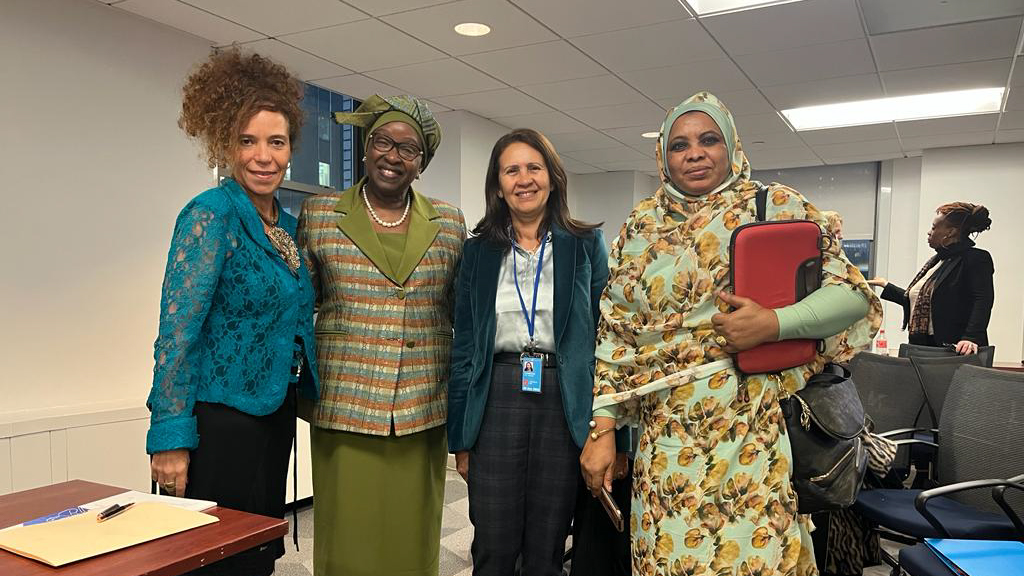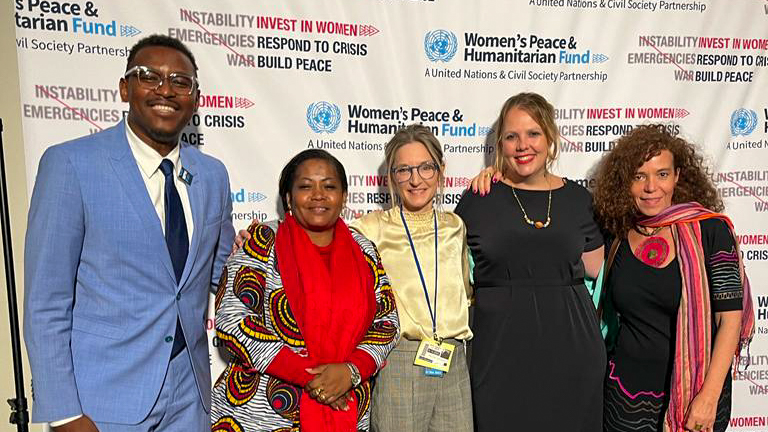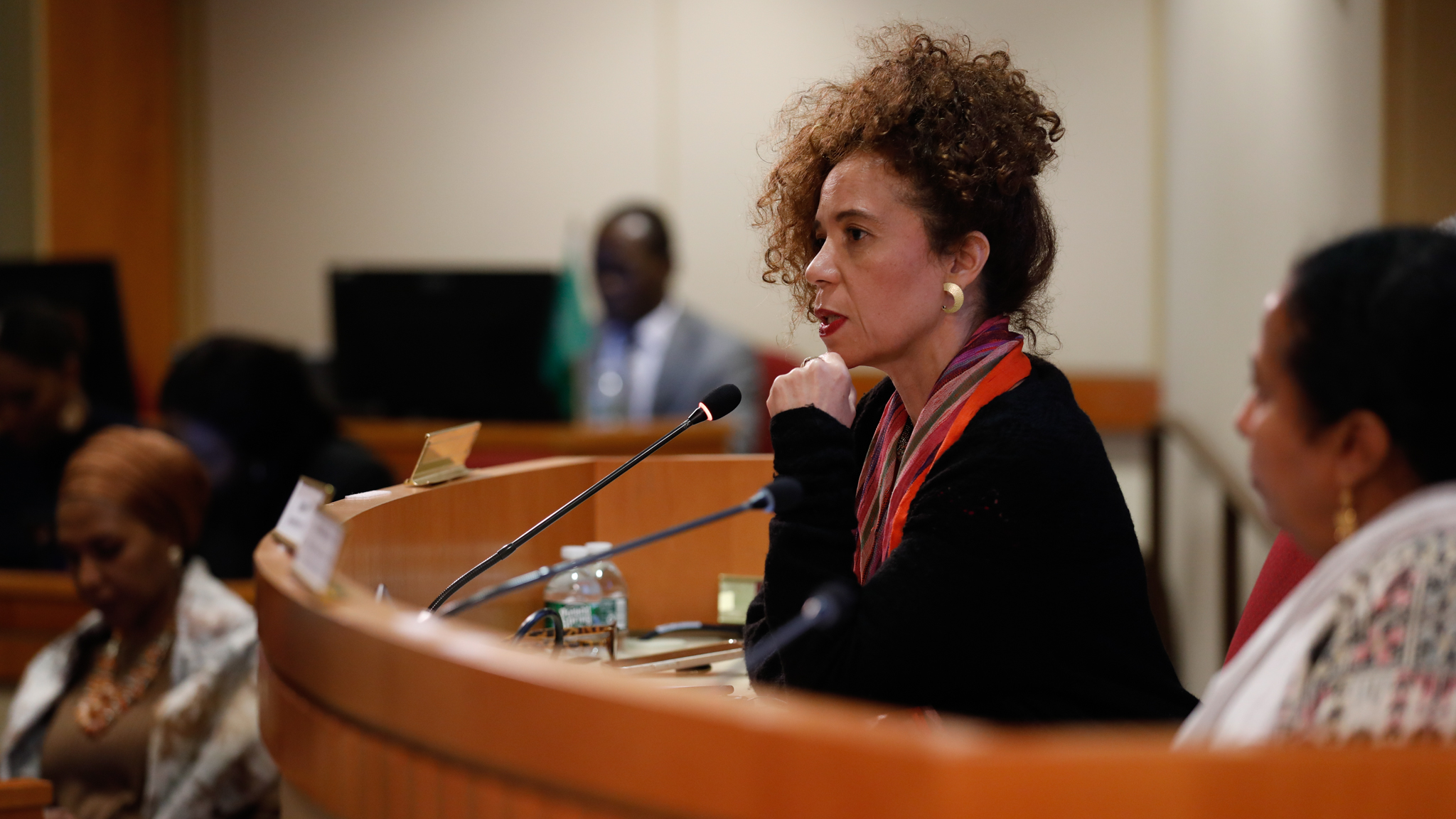Reflections after WPS week: The WPS participation agenda needs a re-conceptualisation in light of the changing geopolitical realities
Author: Thania Paffenholz
Inclusive Peace’s Executive Director reflects on her recent engagements during WPS week 2023 in New York.
I just got back from New York where I attended the WPS week and I am full of good vibes, hope, and new ideas for how to move the WPS agenda forward. During the week in New York I was involved in a variety of events, exchanged with so many wonderful colleagues from around the globe and observed interesting debates – and looking back on all these amazing engagements it stands clear that the WPS participation agenda needs a profound reconceptualisation.
,
During the week, I heard many of the familiar statements like: “ Where are the women? We are missing the women at the high level peace talks.” These statements relate to all kinds of contexts from Afghanistan to Sudan, DRC to Colombia. The question I kept on asking was: Where is that famous peace table? Which processes are you talking about that women should be part of? When I got answers especially from local women peacemakers like from Sudan or DRC or Colombia, it became clear that women are already at the centre of processes in their countries. When we for example discussed the situation in Afghanistan, I was wondering which table the international community wants to prepare Afghan women for?
The familiar advocacy rhetoric of the need to include women seems to be outdated and not fit for purpose in a changing peace and security world. The UN is no longer the leader in peace processes, Comprehensive Peace Agreements are vanishing and new coalitions of states are entering the peace meditation space like Qatar, South Africa, Kenya, China or Turkey. Furthermore, extreme closed authoritarian spaces like Afghanistan or Myanmar are far from entering a process in the near future. In these closed spaces the inclusion question is a very different one. It is not about the peace table, it is rather about how to break down the authoritarian wall and how various women and men can contribute, for example with creative ideas and coalition building among influential stakeholders from the regions.

Aside from all these frustrating developments for civic engagement in peace processes, we also see hope: There are more and more formal civilian lead political processes like National Dialogues. Ethiopia, DRC and soon Sudan are great examples of processes where the inclusion question is turned upside down. It is no longer a question of women or civil society inclusion but a question of how armed actors can be included in a meaningful way and not spoil or co-opt the civilian led political processes. These developments lead to new role definitions for supporting states and the UN. What is needed are powerful alliances of states that help to shape and protect the new civilian spaces not only by supporting them politically and financially, but most of all by helping to manage armed actors and their supporters.
During WPS week, I was particularly impressed by stories of the spectacular resilience of
women peacemakers who take action in the midst of chaos and crisis as well as the progress for women inclusion especially in international and national institutions through the collective efforts of women mediators networks. Years ago, women in positions of mediation and negotiations in peace processes were alone – but now there are networks to support women mediators and negotiators all around the world. The networks have shown sisterhood in practice by connecting women, building capacities of women mediators across the globe, creating high-level career opportunities for their members and connecting strategically in support of processes. The conversations also demonstrated that women and men leaders contribute different things to peace and political processes: Even though these gender binaries are very stereotypical, some stereotypical perceptions of what women bring to the table have worked in favour of women-led processes, like empathy, trust, peace orientation, care and motherhood.

What I missed at WPS week were conversations about political protection of women peacemakers. I kept thinking about the many activities of the WPS community to bring women together to unite, strategies or training for peace – and the acute lack of protection of these women from physical and social media aggression when they leave the ‘activity’ arena and come home to their families.
What is the way forward then?
- The WPS participation agenda needs a reality check in order to adapt to the different contextual situations. It cannot be a harmonised advocacy and action playbook geared towards the so-called peace table that in effect is vanishing or transforming
- There is furthermore a need to redefine the roles of most actors within the peace and security space
- There is a need for research on how the changing paradigm is playing out in different contexts to adapt strategies;
- The entities ‘counting women’s participation’ need to embrace new units of analysis. Only counting UN led or UN co-lead or supported processes will not provide us with the right statistics.
- Every single activity with (women) peacemakers need to include a protection strategy and always put their safety before other goals
- In light of a changing world we need more creativity that allows us to identify opportunities and strategies against resistances to the change that is needed
Let us all join together in the movement #WomenForPeace 🙏🏿

